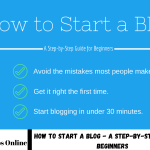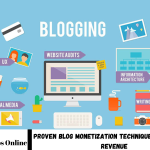Starting a business in 2025 doesn’t have to be a long-term commitment—sometimes, the most brilliant move is a focused, time-bound venture. That’s where a 12-month business idea comes in. Designed for individuals who want to make the most of one year—whether it’s to test the waters of entrepreneurship, earn extra income, or build a stepping stone to a bigger dream—this kind of business is flexible, practical, and results-driven.
A 12-month business plan enables you to set clear goals, manage risks effectively, and track your progress from start to finish. Whether you’re a student on a gap year, a freelancer seeking a side project, or someone between jobs looking for financial stability, launching a one-year business in 2025 could be your opportunity to build something meaningful without the pressure of a long-term commitment.
We’ll explore powerful business ideas tailored to this timeline, taking into account modern trends, low startup costs, digital tools, and market demand. You’ll learn how to plan, launch, and grow your business month-by-month, all within a 12-month framework. If you’re ready to turn ambition into action, this could be the perfect year-long journey to start in 2025.
Why Start a 12-Month Business in 2025?
Starting a 12-month business in 2025 is an innovative and strategic move, especially in today’s fast-paced, digital-driven world. With the rise of remote work, freelance culture, and short-term projects, people are increasingly freed from traditional, long-term business models. A one-year business gives you the flexibility to explore your passion, test a new idea, or earn extra income, without making a lifelong commitment.
The year 2025 brings unique opportunities. Technology is more accessible than ever, online marketplaces are booming, and people are actively looking for fresh, innovative products and services. Whether you’re a student, a stay-at-home parent, or a full-time professional, a 12-month business allows you to take control of your time and income on your terms.
This model is also perfect for low-risk experimentation. You can start small, learn fast, and adjust quickly. Plus, you’ll develop valuable skills in marketing, management, and customer service that can benefit your career or next venture.
Who Should Consider a 12-Month Business Model?
A 12-month business model is ideal for anyone looking to explore entrepreneurship without committing to a long-term venture. It’s flexible, manageable, and designed to fit a variety of lifestyles and goals. Here’s who can benefit most from this approach:
Students and Recent Graduates
If you’re taking a gap year or have just completed your studies, a one-year business internship can give you hands-on experience, income, and a strong portfolio before stepping into the job market.
Freelancers and Creatives
Writers, designers, and digital creators can utilize this model to launch a focused project or product line—such as an online course, digital product, or content series—with a clear beginning and end.
Stay-at-Home Parents
For those balancing home life and looking to contribute financially, a short-term business offers the flexibility to work from home and manage time efficiently.
Job Seekers or Career Changers
A one-year business can fill employment gaps, build confidence, and open new career paths—all while generating income.
Aspiring Entrepreneurs
If you want to “test the waters” before diving into a full-scale business, this model allows you to learn, grow, and make smart decisions for future ventures.
Anyone seeking flexibility, purpose, and practical results should seriously consider a 12-month business in 2025.
How to Plan Your 12-Month Business Step-by-Step
Starting a 12-month business in 2025 can be exciting and rewarding, especially when you follow a clear and structured plan. Here’s a step-by-step guide to help you build and grow your business month by month:
Step 1: Set Clear Goals (Month 1)
- Decide what you want to achieve (profit, brand building, learning, etc.).
- Define your target audience and niche.
- Choose a business idea based on your skills, interests, and market trends.
Step 2: Do Market Research (Month 1–2)
- Study your competitors and audience needs.
- Identify gaps in the market.
- Validate your idea through surveys or simple test offers.
Step 3: Create a Simple Business Plan (Month 2)
- Outline your business model, product/service, marketing, and finances.
- Set monthly goals and expected milestones.
- Plan your startup budget and expected earnings.
Step 4: Build Your Brand (Month 2–3)
- Choose a business name, logo, and brand colors.
- Create a basic website and social media profiles.
- Focus on consistency across all platforms.
Step 5: Launch Your Product or Service (Month 3–4)
- Begin with a soft launch or Minimum Viable Product (MVP).
- Collect feedback from early users and customers.
- Make quick improvements based on real-world input.
Step 6: Market Aggressively (Month 4–7)
- Use social media, email marketing, and content creation.
- Run small ad campaigns (Google/Facebook/Instagram).
- Collaborate with influencers or local partners.
Step 7: Optimize and Expand (Month 7–9)
- Analyze sales and customer feedback.
- Improve your offers, processes, or website.
- Consider adding new products or services or targeting new segments.
Step 8: Maximize Profits (Months 9–11)
- Upsell to existing customers.
- Run seasonal promotions or discounts.
- Cut unnecessary expenses to boost profit margins.
Step 9: Review & Decide the Future (Month 12)
- Measure your success against your original goals.
- Decide whether to end, scale, or pivot your business.
- Document your lessons learned for future use.
A 12-month business isn’t just a side project—it’s a thoughtful, time-bound journey toward independence and growth. With the proper planning and consistency, you can turn one year into something meaningful and profitable.
Read Also: Breaking Borders: How Overseas Soccer Broadcast Connects Global Fans
Essential Tools and Resources to Kickstart Your Business
Starting a 12-month business in 2025 is easier than ever, thanks to robust digital tools that help you launch, manage, and grow your business with minimal investment. Here’s a list of must-have tools and resources to help you hit the ground running:
Business Planning Tools
- Notion / Trello / ClickUp – For organizing ideas, tasks, and timelines.
- Canvanizer / Lean Canvas – Create a simple one-page business plan.
Website & E-commerce Platforms
- Wix / WordPress / Webflow – Build professional websites with ease.
- Shopify/BigCommerce – Perfect for launching an online store.
- Linktree / Carrd – Simple one-page websites for portfolio or services.
Branding & Design
- Canva – Design logos, social media posts, flyers, and more.
- Looka / Hatchful – AI-based logo generators for beginners.
- Coolors.co – Generate color palettes for your brand.
Marketing & Social Media
- Meta Business Suite, Buffer, or Later – Schedule and manage posts.
- Mailchimp / Brevo (Sendinblue) – Email marketing made easy.
- Google Analytics – Track your website traffic and user behavior.
Payments & Finance
- PayPal / Stripe – Accept payments online globally.
- Wave / Zoho Books – Free accounting and invoicing software.
- Wise/Payoneer – For international transactions and currency conversions.
Productivity & Communication
- Google Workspace / Microsoft 365 – Email, Docs, Sheets, and more.
- Slack / Zoom – Team communication and client meetings.
- Calendly – Let clients book meetings with you easily.
Learning & Support
- YouTube / Coursera / Skillshare – Learn business skills and strategies.
- Reddit, Indie Hackers, and Facebook Groups – Join communities for support and feedback.
- Local Government Portals – For information on business registration and licensing.
These tools help you stay organized, save time, and scale efficiently, no matter your business type. Best of all, many offer free versions, allowing you to get started even on a tight budget.
Frequently Asked Questions
Can I run this business part-time?
Absolutely. Many people run 12-month businesses on the side of their jobs, studies, or family responsibilities. Time management and planning are key.
What if my business doesn’t succeed?
That’s okay. The 12-month model is low-risk and offers a wealth of learning opportunities. You can close it down with minimal loss or pivot to something better, leveraging your experience.
How do I attract customers quickly?
Use social media marketing, influencer collaborations, targeted ads, and value-driven content. Focus on solving a specific problem for a defined audience.
Can I extend my business beyond 12 months?
Yes! If your business is doing well, you can choose to continue, expand, or even turn it into a full-time venture.
What are the biggest challenges in a 12-month business?
Time management, marketing, and consistent effort are key challenges. But with a clear plan and the right tools, you can overcome them and achieve success.
Conclusion
Starting a 12-month business in 2025 is an innovative and flexible way to explore entrepreneurship, build new skills, and generate income, without making a long-term commitment. As the FAQs above demonstrate, this model suits a diverse range of individuals, including students, freelancers, career changers, and part-time dreamers. Whether you’re looking to test an idea, build a personal brand, or just challenge yourself with something new, a one-year business can open doors to exciting opportunities.






